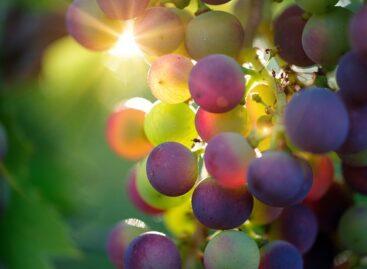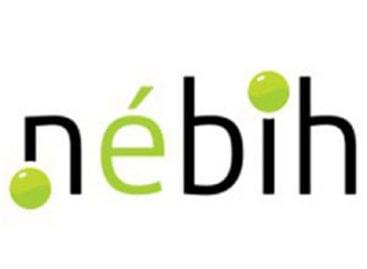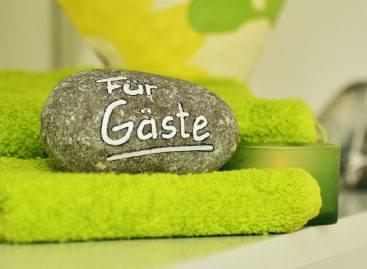You are what you eat
Most Hungarian consumers think of healthy eating when organic foods are discussed, but many are also beginning to be aware of the sustainability aspects of these foods. Although organic foods tend to be more expensive than ordinary groceries, few people know that it is enough to eat less of these, as their nutrient level is higher.
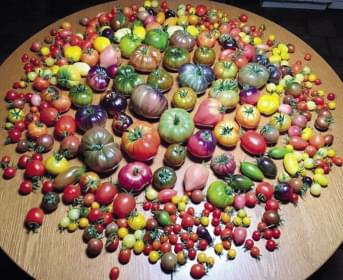
Agricultural biodiversity is just as important on the long run as is genetic or ecological biodiversity
Dr Géza Márai, a professor of Szent Isván University in Gödöllő, studied several fruits and vegetables in this respect between 1966 and 2005. His measurements revealed that wheat’s mineral and vitamin content dropped 65% in the examined period. In the case of corn this decrease was 69%, for potato minus 89% was measured, apple’s mineral and vitamin level fell 80% and strawberry contains 68% less of these nutrients.
Bio or organic?
Many people use the terms “bio” and “organic” as synonyms, because they don’t know the difference between. Bio and organic product labels are primarily used in the European Union, but even there this marking can be ambiguous, for instance in France organic foods have a bio label on them. Organic foods are made the traditional way, “naturally”, without using chemicals or genetically modified ingredients. Bio foods are foods produced in the European Union that demonstrate caring about the environment, natural genetic processes, natural reproduction strategy and paying attention to biological diversity.
Usually bio foods are more expensive than organic ones. Bio products are fresh and additive-free. As there are no flavour enhancers and artificial preservatives in them, their shelf life is usually short. In Hungary ecological farming is audited and certified by organisations such as Hungária öko Garancia or Biokontroll Hungária Nonprofit Kft.; how these organisations operate is controlled by the National Food Chain Safety Office (Nébih).
Me and the environment
Let’s return to organic farming a little: one of the biggest challenges these days is to produce enough food to feed the population of the Earth, without ruining the planet. The “Farm to Fork” strategy of the European Union has set the goal of doing organic farming on 25% of the agricultural land in the region by 2030. Organic farming also plays a vital role in the preservation of biological diversity. However, the worries concerning lower yield generate debate about how can enough food be produced this way for feeding the whole world. //
Most small organic shops will disappear!

András Jánvári
CEO
Bio Egészség
Our product selection and sales strategy concentrate on both online and offline retail. From 2020 the majority of our sales shifted to the online shop, due to the pandemic. Nowadays the market is becoming more pessimistic about the purchasing power of consumers. It very much seems that small organic shops ran by 1-2 people will disappear, because they are unable to offer good prices and a big enough assortment. //
Shoppers are more conscious
Herbaház shops are selling products related to natural therapy, healthy eating and lifestyle – said Judit Balogh, Herbaház’s head of marketing. The proportion of organic products has been high in our assortment for decades. Sales of these continue to grow and new consumer groups are buying them. Shoppers are more and more conscious, therefore environmental protection is also a factor in their buying decisions. In Herbaház shops nutrition experts help customers choose the right products. //
Sustainability and climate protection
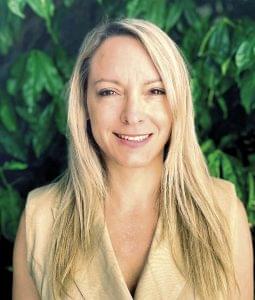
Noémi Makai
marketing manager
Hipp
We offer a growing selection of organic products, as Hipp has been dedicated to the cause of sustainability for a long time. Our view is that sustainability is achieved when ecology, economy and society are in balance. Hipp’s experience is that parents are increasingly conscious about feeding their children: not only organic ingredients, reliable quality and an innovative product selection matter to them, but climate protection as well. //
Where there is intention and capital too
In Castrop-Rauxel, a small town in Germany with 80,000 inhabitants, they organised a conference in May, for the representatives of the municipality, mass catering companies, schools and for the parents. Participants discussed how to do the full switch to organic food in catering for children. Swedish energy giant Vattenfall has already done this in Germany: at their 20 sites 4,000 employees are served organic food in the cafeteria; at first costs increased by 60-90%, but by now they managed to reduce this to 20-40%, thanks to not sourcing more than 800 different products or having vegetarian Wednesdays. //
Hungarian organic products in the international market
This July the world’s biggest organic product fair, the Biofach International Trade Fair for Organic Food and Non-food products, was organised for the 33rd time. In the four-day period 3,200 exhibitors were waiting for visitors from 143 countries. Hungary’s presence was organised by the Agricultural Marketing Centre (AMC), and altogether 11 companies showcased their organic products. AMC introduced its own export development programme, called the Hungarian Food Business Programme.
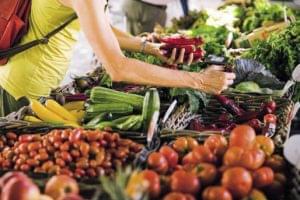
Fresh organic food products are available in higher-positioned shops and marketplaces
//
Related news
Hungarian vineyards are under serious threat – Nébih calls on farmers to take action
The golden yellow phytoplasma disease spread by the American grape…
Read more >Let’s protect our domestic plantations together against grapevine golden yellow disease
Grapevine golden yellow disease, spread by the American grapevine cicada,…
Read more >Call to license holders of plant protection products that are not classified as plant protection products
Nébih calls the attention of license holders of plant protection…
Read more >Related news
NGM: tourism continues to boom – more than 1.7 million tourists arrived at domestic accommodations in May
The government is constantly working to attract more and more…
Read more >
